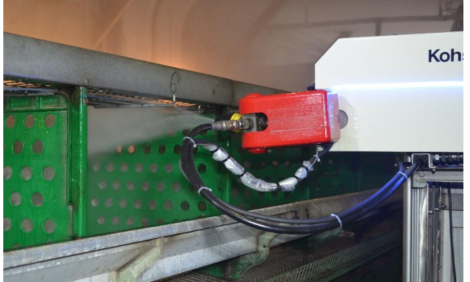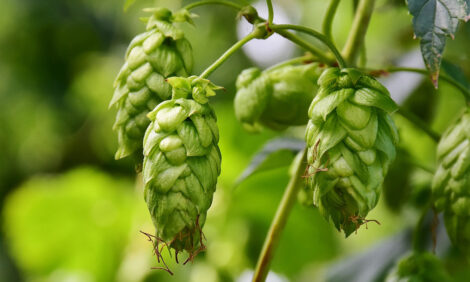



Modulation of the Intestinal Environment and Innate Immune Response by Dietary Threonine and Purified Fibre During a Coccidiosis Challenge in Broilers
Threonine supplementation had a greatest effect on intestinal immune response than dietary fibre and resulted in near-normal growth of young broiler chicks infected with coccidiosis.Coccidiosis is a major contributor to economic losses in the poultry industry due to its detrimental effects on growth performance and nutrient utilisation.
In a paper in Poultry Science, E.L. Wils-Plotz of the University of Illinois and co-authors there and USDA Agricultural Research Service hypothesised that the combined effects of supplemental dietary threonine (an essential amino acid) and purified fibre may modulate the intestinal environment and positively affect intestinal immune responses and barrier function in broiler chicks infected with Eimeria maxima, one of the pathogens causing coccidiosis.
A threonine-deficient basal diet (3.1g threonine per kg of diet) was supplemented with 70g per kg of silica sand (control) or high-methoxy pectin and one of two concentrations of threonine (1.8 or 5.3g per kg of diet; four diets total), and fed to chicks from hatch to 16 days after hatching.
On day 10 post-hatch, chicks received 0.5mL of distilled water or an acute dose of E. maxima (1.5 × 103 sporulated oocytes) with six replicate pens of six chicks per each of eight treatment combinations (four diets and two inoculation states).
Body weight gain, feed intake, and feed efficiency increased (P<0.01) with addition of 5.3g of threonine per kg of diet.
E. maxima schizonts were present only in intestinal tissue sampled from infected birds (P<0.01).
Weights of caecal digesta were highest (P<0.01) in pectin-fed birds, and caeca with the heaviest weights also had the highest concentrations of total short-chain fatty acids.
Expression of interleukin-12 in ileal mucosa was highest (P<0.01) in infected birds receiving the control diet with 5.3g of supplemental threonine per kg. In caecal tonsils, interferon-γ expression was highest in infected birds receiving the control diet (fibre × infection, P<0.05); interferon-γ expression was lowest in infected birds fed the high threonine diet (threonine × infection, P<0.05).
There were no differences due to infection or threonine supplementation for cytokine expression in birds fed pectin-containing treatments.
Wils-Plotz and co-authors concluded that although pectin has some protective function against coccidiosis, threonine supplementation had the greatest effect on intestinal immune response and maintenance of near-normal growth in young broiler chicks infected with E. maxima.
Reference
Wils-Plotz E.L., M.C. Jenkins and R. N. Dilger. 2013. Modulation of the intestinal environment, innate immune response, and barrier function by dietary threonine and purified fiber during a coccidiosis challenge in broiler chicks. Poult. Sci. 92(3):735-745. doi: 10.3382/ps.2012-02755
Further Reading
You can view the full report by clicking here.
Find out more information on coccidiosis by clicking here.
April 2013









